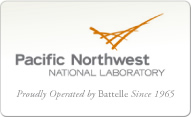
Conversion of Levulinic Acid to Methyl Tetrahydrofuran
Pacific Northwest National Laboratory
Contact PNNL About This Technology
Technology Marketing SummaryLevulinic acid is a highly desirable renewable chemical platform, which, using this process, can be converted into Methyl Tetrahydrofuran (Me-THF) with reasonable yield. The result is a chemical compound that could represent a viable renewable alternative to compounds currently being used in the production of fuel and other similar products.
DescriptionMethyl tetrahydrofuran (Me-THF) has shown potential as a component of P-series fuels—renewable fuels that can substitute for gasoline, and which are projected to boast competitive retail prices.
Me-THF has also been demonstrated as a useful, less volatile replacement for tetrahydrofuran (THF), and could be used as a solvent for:
It may also be used as a replacement for methylene chloride, a volatile organic compound widely used as a solvent in consumer and industrial products, applications for which potentially safer alternatives are currently in demand. Benefits
Technology Status
Me-THF has also been demonstrated as a useful, less volatile replacement for tetrahydrofuran (THF), and could be used as a solvent for:
- Organometallic chemistry, the study of chemical compounds involving bonds between carbon and metal
- Grignard reagent formation
- Extractions.
It may also be used as a replacement for methylene chloride, a volatile organic compound widely used as a solvent in consumer and industrial products, applications for which potentially safer alternatives are currently in demand. Benefits
- Less pollution created compared to alternative chemical processes
- End product is useful as a component of renewable gasoline fuel
- First direct and high yield synthesis of methyl tetrahydrofuran from levulinic acid
- Chemical manufacturing
- Renewable fuel production
ID Number |
Title and Abstract | Primary Lab |
Date |
|---|---|---|---|
Patent 5,883,266 |
Hydrogenated 5-carbon compound and method of making
The present invention is based upon the surprising discovery that a 5-carbon compound selected from the group of 4-oxopentanoic acid, at least one lactone of 4-oxopentanoic acid, and combinations thereof, may be hydrogenated with a bimetallic catalyst of a noble metal in combination with a second metal and preserve the pendant methyl group. It was further unexpectedly discovered that the same conditions of bimetallic catalyst in the presence of hydrogen are useful for catalyzing the different intermediate reactions for example angelicalactone to gamma-valerolactone and gamma-valerolactone to 1,4-pentanediol. Finally, it was surprising that levulinic acid could be converted to 2-methyltetrahydrofuran with heating in the presence of the bimetallic catalyst and hydrogen in a single process vessel. The method of the present invention unexpectedly produced a fuel or fuel component having 2-methyltetrahydrofuran either in a yield greater than 4.5 mol % or in combination with alcohols. |
Pacific Northwest National Laboratory | 03/16/1999
Issued |
Technology ID | Development Stage | Availability | Published | Last Updated |
|---|---|---|---|---|
| 11733 | Prototype - The process for converting levulinic acid to methyl tetrahydrofuran has been demonstrated at lab scale. | Available - Available for licensing in all fields of use | 08/05/2010 | 09/10/2010 |

